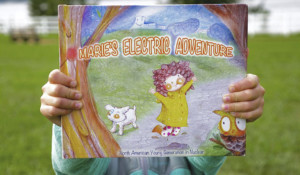 An anti utopia is usually an imaginary world full of horror and misery. It is unlike a utopia, which is an imaginary world that is perfect in every way. The most notable anti utopias were created by two famed authors Aldous Huxley and Geroge Orwell, in their novels based on futuristic anti-utopias.
An anti utopia is usually an imaginary world full of horror and misery. It is unlike a utopia, which is an imaginary world that is perfect in every way. The most notable anti utopias were created by two famed authors Aldous Huxley and Geroge Orwell, in their novels based on futuristic anti-utopias.
Aldous Huxley describes a world where there is no pain or suffering, and hedonism and scientific technology have taken over the world, stripping humanity of grief and other emotions that make life meaningful. George Orwell, who happened to be a student of Aldous Huxley, also wrote an anti-utopian novel describing a totalitarian future and the fate of those who tried to stand up to it.
Both novels were based on a distant future and share numerous common themes, such as an inherent distrust of the state. However, they are also many differences, and the two approach the subject completely differently.
Brave New World
The anti utopia futuristic novel Brave New World is set in a seemingly utopian world where there is no sickness, pain, or poverty, and everything is structured and controlled by the government. Sex is only a means of procreation and is continuously encouraged through slogans, such as “everyone belongs to everyone else.” Children are born and raised in factory-like institutions and genetically modified to fit into predetermined, man-made class systems.
Two citizens from this New World seem to be falling in love, which is seen as antisocial behavior. They travel to a ‘savage reservation’ filled with people who are shunned by society for believing in the old fashioned values of love and freedom, for research purposes. Here they meet one of the old residents of the New World, an elderly woman, and her son, who happens to be the son of an influential figure in the New World. They are taken back to society as an experiment.
However, the woman dies from an addiction to an anti-anxiety substance that is common in the new world, driving her son almost mad with guilt and regret. We see an argument between the leaders of this New World and the son who determines that it is his right to feel unhappy, uncomfortable, or emotional if he wants to – feelings that the entire novel dictates are crucial to leading a genuine and humanistic life. Being denied this right, the son self-exiles himself to lead a life as uncomfortable as possible and eventually kills himself.
1984
George Orwell’s anti-utopian novel is set in the future as well. This future, however, is run by a totalitarian government that does not believe in free-thinking and tries to impose as much control over its citizens as possible through extreme measures. Run by a figurehead known as “Big-Brother” and monitored by the “Thought Police,” the future seems bleak and frightening.
The book’s protagonist, along with his like-minded love interest, becomes attracted to a revolutionary group of dissenters who want a life of honesty and decency. Unbeknownst to them, they are being monitored closely by the government and are eventually caught. The true theme of the book emerges here, where to break the prisoners, they are subject to unimaginable horrors until they are stripped of their humanity and will to live freely entirely.
As the protagonist is being tortured, he begs for the punishment to be inflicted on his lover instead. Years later, the two ex-lovers encounter each other, but neither one of them is interested in the other anymore. Instead, the protagonist now only reveres the “Big Brother.”
Relation To The Modern World
Although the two books were written decades ago, many of their themes still ring true. This includes the dangers of having an all-powerful government, technology which is used to control the masses, the rise of government control, and the holistic nature of both happiness and sadness.
These two books are commonly used as study materials in classes because of their futuristic thinking. Some professors may ask their students to write an essay about Brave New World, which might be a bit tricky if you don’t understand the book properly. You can also read an article on the web that describes the true essence of the anti-utopia present in the novels.
Reading these novels that describe two vastly different kinds of anti utopias gives one a more in-depth understanding of some of the problems faced by the current world. Both novels were published round about the time of World War II, and they both reflect upon the feelings of resentment and distrust of the state at the time.
They both highlight different issues as well, with Huxley’s novel focusing on how technology is not the answer to our social problems and with Orwell focusing on the importance of democracy. However, the similar themes present in the book help us to learn the importance of freedom.
Conclusion
An anti utopia is a frightening and terrible imaginary world created by some authors to highlight different issues. In Aldous Huxley’s case, it was the loss of completeness and humanity in search of a perfect world; whereas, in George Orwell’s novel, it was about the dangers of having an all-powerful totalitarian government. The writing and tone in both novels are foreboding, and they are excellent materials for students to read to help them learn about the complexities of social issues and the dangers of not being careful with our future.
References
https://www.sparknotes.com/lit/bravenew/themes/
https://www.britannica.com/topic/Brave-New-World
https://www.britannica.com/topic/Nineteen-Eighty-four


